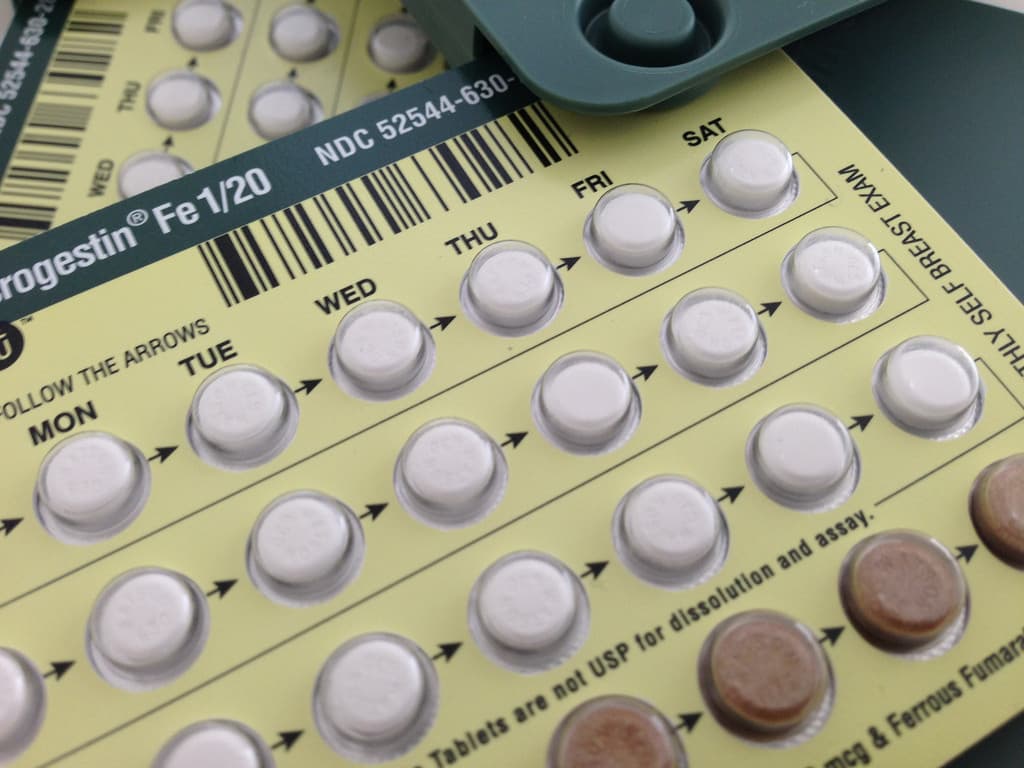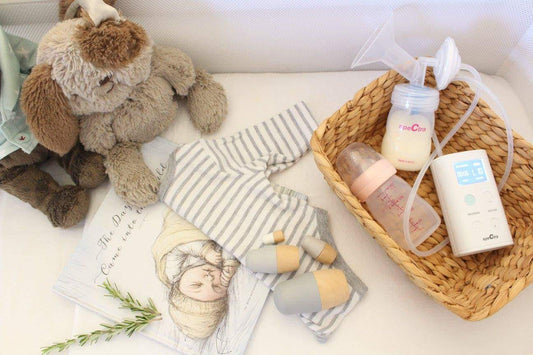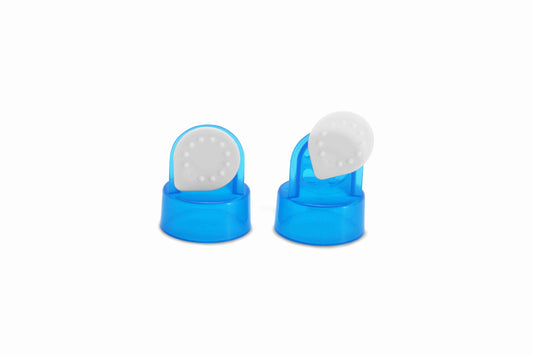Hormonal birth control and breastfeeding
Under normal circumstances you can safely take hormonal birth control while breastfeeding. Unless you have an older baby (who is not relying exclusively on breastmilk) the birth control you take while breastfeeding should not contain (or contain very little) estrogen. Estrogen can change the consistency of your breastmilk. Here are a list of some of the hormonal birth control medications that you can use while breastfeeding:- The mini pill
- Contraceptive injection (Depo)
- Contraceptive implant
- Hormonal IUD
If you suspect any changes in your milk supply after starting one of these medications, talk to your care provider.

IUD's and breastfeeding
You can use a copper IUD or a hormonal IUD while breastfeeding. Your care provider will need to insert this for you so you should discuss this at your postnatal examination. Note that depending on the type of pregnancy and birth you have had, you'll have to wait several weeks to months to have an IUD inserted.

Studies show that IUDs are 99% effective in preventing pregnancy - this newborn baby clutching an IUD is the 1% :)
Condoms as birth control while breastfeeding
It's safe to use condoms or other forms of barrier method birth control while breastfeeding. The important thing to note is that the hormones your body produces while breastfeeding will impact how much natural lubricant you will produce. This means that barrier methods might be more painful than they were before pregnancy. You should use water based lubricants along with these methods to avoid discomfort or irritation during intercourse.Tubal litigation and breastfeeding
No studies have shown that tubal litigation has any impact on breastfeeding. Some women choose to get a tubal litigation right after birth, or even during a C-section. However, if you're currently breastfeeding and considering a tubal litigation, you may wish to wait until after you're done breastfeeding to have one. Surgery of any kind, including tubal litigation, can be challenging while breastfeeding. You'll be away from your baby for an extended period of time and potentially unable to pump or breastfeed. You could be going under anesthesia or taking certain medications that may be unsafe while breastfeeding, or impact your milk supply. You may wish to use a breast pump to express an extra supply of breastmilk ahead of time, just in case. If you're planning a tubal litigation while breastfeeding you should talk to your care provider about any potential problems related to breastfeeding.

Breastfeeding can be 98% effective in preventing pregnancy.
Breastfeeding as birth control
If you have a younger baby you may not need to worry about birth control and breastfeeding right away. The act of breastfeeding in and of itself prevents ovulation. Breastfeeding can be used as a method of birth control. Studies have shown breastfeeding to be 98% effective in preventing pregnancy. However, in order to rely solely on breastfeeding as birth control, you need to meet the following criteria:- Your baby is under 6 months of age
- You are exclusively breastfeeding
- You aren't supplementing or feeding your baby solid foods
- You are breastfeeding your baby on demand
- Your period has not started yet
Even so, if you use meet these conditions and don't wish to use additional contraception, you should be prepared for surprises. Don't rely on breastfeeding ONLY if it's important to you not to conceive. Our founder conceived several times at 4 months postpartum while breastfeeding exclusively! With this method it's important to be very aware of your body and your breastfeeding habits. Certain things can make this method of birth control less effective, like if your baby is sleeping through the night at an early age - even if you haven't had your first period after baby while breastfeeding

Spectra S2 Hospital Grade Double Electric Breast Pump
If you have specific questions about birth control and breastfeeding, speak to your care provider. Remember that the information shared on our page is basic, and that individual circumstances may vary - always follow your care provider's advice.




